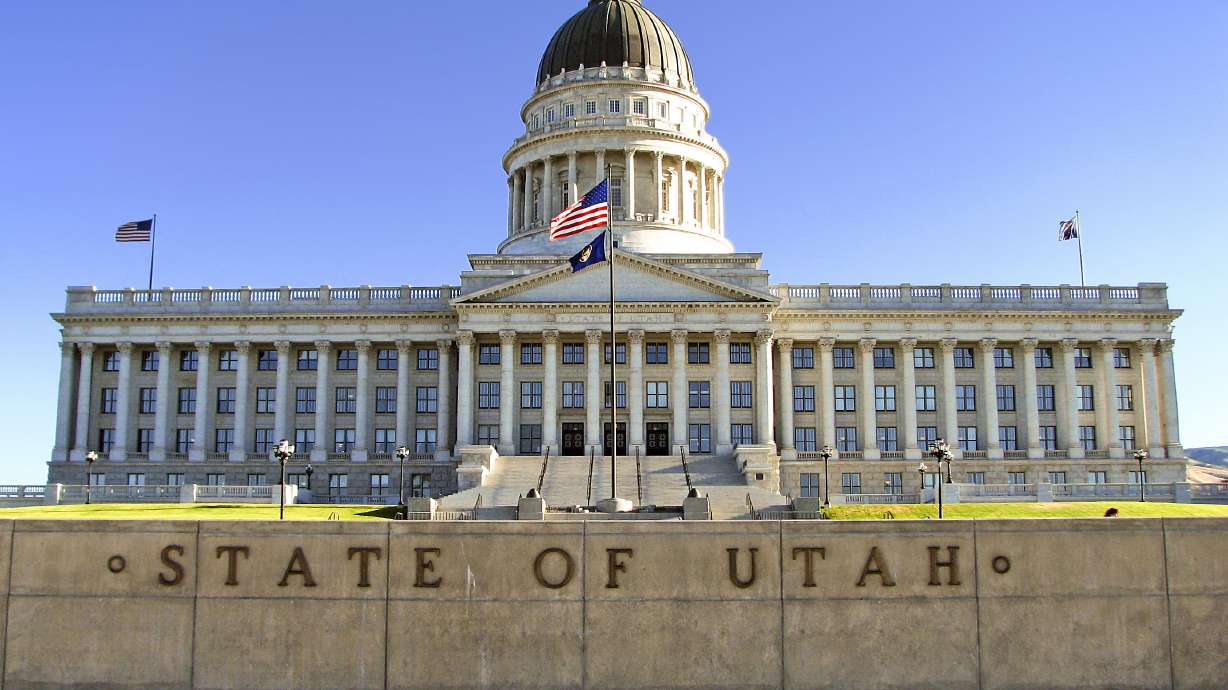Estimated read time: 3-4 minutes
This archived news story is available only for your personal, non-commercial use. Information in the story may be outdated or superseded by additional information. Reading or replaying the story in its archived form does not constitute a republication of the story.
SALT LAKE CITY — Lawyers for the Utah Media Coalition objected Tuesday to House and Senate Republicans, who hold a supermajority in the Utah Legislature, convening closed caucus meetings to discuss and even vote.
"Utahns deserve better. Utah has a long and proud tradition of conducting the public's business in public," the lawyers, Jeff Hunt and Michael Patrick O'Brien, wrote in a letter hand-delivered to GOP legislative leaders.
Cited as the "most recent unfortunate example" was the Oct. 13 closed House Republican caucus where members were said to have voted to reject a Medicaid expansion proposal advanced by GOP legislative leaders and Gov. Gary Herbert.
The public "deserves — and is legally entitled to — a robust and transparent public debate. Instead, the public was left totally in the dark as a majority of their elected representatives in the House spent four hours behind closed doors secretly debating and voting" on the proposal, the letter stated.
With the 2016 Legislature set to start in late January, the coalition representing the Deseret News, KSL and other leading Utah news organizations urged GOP leaders to open the House and Senate Republican caucuses to the public and the news media.
Hunt said the letter was "definitely not threatening legal action." But he said he does not believe the caucus exemption in the state's open meetings law applies when a majority of lawmakers gather to discuss and vote on proposed legislation.
Such meetings may also raise state constitutional questions, Hunt said. The letter refers to portions of both the law and the Utah Constitution that call for the Legislature to conduct their business in public.
Even if lawmakers disagree, Hunt said, "just because they think they can close these meetings doesn't mean they should. That's what we wanted to emphasize in that letter."
House Majority Leader Jim Dunnigan, R-Taylorsville, said legislative leaders "believe in transparency. We know we're doing the public's business." He said all "official votes" are taken in public, in committee hearings or on the House floor.
"Any vote or any discussion we have in the caucus is nonbinding. So it's an opportunity for people to have a discussion and get educated on issues," Dunnigan said. "Sometimes we think it's important to have a discussion in a closed caucus."
The majority leader said of the nearly two dozen caucus meetings held this year by the House GOP, only one entire meeting was closed, on Oct. 13. He said Medicaid expansion was only talked about for half of the four-hour meeting.
"Openness and transparency is foundational to good government, and any attempt to do the public's business in private must be challenged," said Paul Edwards, editor and publisher of the Deseret News. "This is particularly true in Utah, where one party wields considerable power and influence. We hope House Speaker Greg Hughes and Majority Leader Jim Dunnigan will embrace this principle and stop using the caucus process to circumvent public debate and accountability."
House Republicans have closed portions of other meetings to discuss Medicaid expansion during the 2015 Legislature, and House Speaker Greg Hughes, R-Draper, had said the latest proposal would need 38 votes in the caucus to advance.
Senate Republicans close all their caucus meetings, and Senate Majority Leader Ralph Okerlund, R-Monroe, said he doesn't anticipate that changing, although the policy will be discussed at an all-day closed planning session scheduled for Jan. 13.
"We talk about it at the beginning of every year," Okerlund said, but Senate Republicans like being able to have discussions in private to avoid "the tendency to grandstand and play to the public and our constituents."
Okerlund said Senate Republicans do not take votes in their caucuses.
Both House and Senate Democrats hold all of their caucus meetings in public, but House Minority Leader Brian King, D-Salt Lake City, said pressure from Democrats and the media isn't going to change the majority's policies.
"The pressure that's really going to make a difference in the minds of legislators is public pressure," King said. If lawmakers see their re-election chances impacted, "that's going to be the thing that causes them to change."









